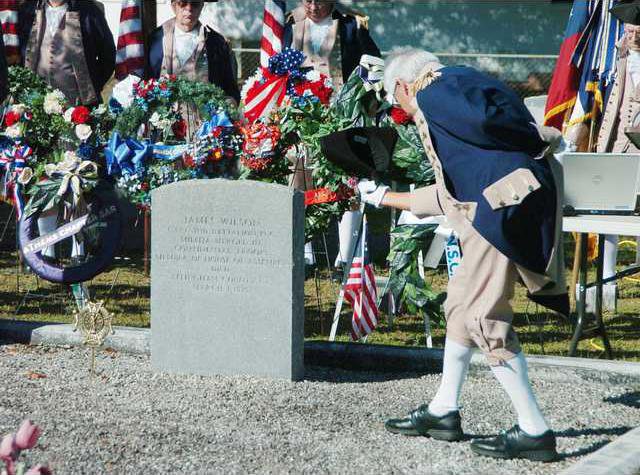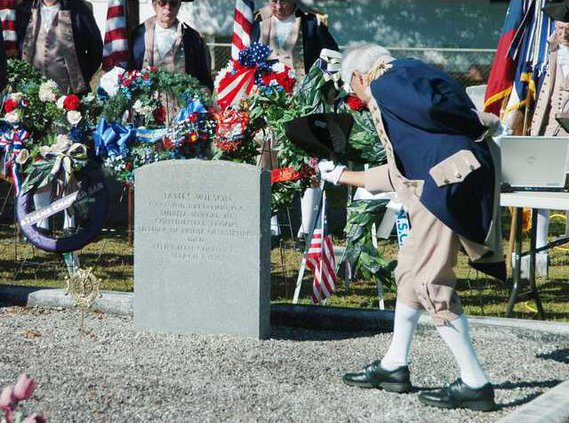With the sound of musket fire and bagpipes, the Sons of the American Revolution paid honor to an Effingham County son and patriot of the Revolutionary War.
In a ceremony Thursday morning at Corinth Baptist Church, a grave marker was dedicated to Capt. James Wilson, who served as a captain in the 10th North Carolina Regiment from April 1777-May 1778. As a member of that unit, Wilson was at Valley Forge in the spring of 1778.
Wilson later joined the 4th South Carolina Artillery and served with that unit from May 1778 until he was taken prisoner when the British captured Charleston, S.C., on May 12, 1780.
“Pitted against British regulars, Hessians, Tories and Indians, America’s Southern heroes turned the tide in the battle for Independence,” said Terry Manning, president of the Georgia Society of the Sons of the American Revolution.
Wilson was included in a prisoner of war exchange and continued to serve in the Continental Army until the end of the war. He received a military certificate of Georgia as a refugee soldier and was granted 287.5 acres of land in Washington County in 1784.
In 1793, he received a Revolutionary War bounty land grant in Effingham County and called it Oak Lawn Plantation.
One of five children, Wilson had five children with his first wife and re-married in 1783, fathering six more children. Wilson’s family originally came to Georgia aboard the vessel the Charity in 1733. He settled in St. Matthew’s Parish, now Effingham County, in 1772.
Marguerite Thompson, Wilson’s great-great-great-granddaughter, unveiled the marker honoring the Revolutionary War soldier.
“I’m very, very proud to know that our ancestor that far back was so involved in our country,” Thompson said. “It’s a very, very rewarding thing to know you had these people who came up under such adverse circumstances.”








